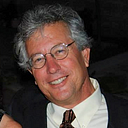APUSH and How I Taught What Took Place at the U.S. Capitol on Jan. 6, 2021
And my attempt to give my 140 US History students a chance to think like true historians.
Historians for many years will no doubt debate fiercely how best to describe in one or two words the events that took place at the U.S. Capitol on January 6, 2021.
Some will certainly call it an insurrection. Others a mere protest. Or a riot, siege, uprising, revolt, and/or rebellion. There may be even a few who insist on calling it an attempted coup. One historian I know is even now already calling it the start of America’s Second Revolutionary War.
Regardless, I decided to put the question to my 140 AP US History students. What should this be called, I asked them.
But before giving them a chance to answer, I told them that most rebellions in American history appear to be attached to a proper name (Shay, Turner, Brown, Vesey, Bacon, Frei, Leisler) whereas most insurrections appear to be attached to a place (Greenwood, Wilmington).
Sure, I added, there are exceptions (the Green Corn Rebellion and Whiskey Rebellion, for example), but the pattern is clear.
The names of various individuals typically get attached to rebellions and the names of places typically get attached to insurrections.
Regardless, what the events of January 6 ultimately end up getting called matters greatly to those who have strong feelings about this question.
Those who support the president, I told my students, insist on calling it either the Capitol Insurrection of 2021 or the Capitol Protest of 2021 whereas
those who want the president to step down immediately keep calling it
either the Trump-Incited Rebellion of 2021 or the Trump-Incited Capitol Riot of 2021.
After having said all the above, I again asked my students “What words do you think historians should use to describe what took place at the U.S. Capital on January 6?”
I then gave my students time in class to research and discuss the issue further.
The next day, I surveyed the students to see where they stood on the question of “what words do you think historians should use to describe what took place at the U.S. Capitol on January 6, 2020?”
- Approximately 40% either had no opinion or declined to state.
- Out of those who did state their opinion, approximately 30% believed that President Trump’s name should be attached to whatever words are used to officially name and/or title the events that took place.
- An overwhelming majority of the students who did state their opinion believed that historians should declare what took place on January 6as either an insurrection or a rebellion.
This is how I sought to take on the overwhelming task of helping my students process the disturbing events that took place at our nation’s Capitol on January 6.
Sure, you may not view it as “the perfect lesson” but then, in the words of iCivics Chief Education Officer, Emma Humphries “there is no perfect lesson plan for this moment.”
“Sometimes,” as Emma added, “the best plan is to just provide a safe place for questions, concerns, and dialogue.” That is what I tried to do.
Below, are just a few examples of how my students answered the question “What words do you think historians should use to describe what took place at the U.S. Capital on January 6?”
Sidenote #1:
Since publishing this post, I have received an email from a colleague who not only has placed the above before his students but also asked his students to assume that they have been elected president and trying to decide whether to sign the (ChatGPT-produced) “Presidential Pardon for January 6th Capitol Protestors” appearing below
To Whom It May Concern,
As President of the United States of America, and in accordance with the powers vested in me by the Constitution, I, _______, hereby issue a full and unconditional pardon to the individuals convicted of crimes related to their participation in the events at the United States Capitol on January 6, 2021.
In the spirit of healing the divisions that have deeply affected our nation, this pardon is a step towards reconciliation. It is essential to move forward as a united country, learning from our past while focusing on building a more inclusive and understanding future. This act of clemency is intended to aid in bridging the divides and fostering a climate of dialogue and mutual respect
Sincerely,
__________ ____________________
President of the United States of America
Sidenote #2
After providing my US Governement students with a chance to discuss the question of how to label the events of January 6, I called on them to access Class Companion, a platform launched in December 2022 and designed to offer instant feedback on their essay writing skills.
The task was to respond to an essay prompt: “Evaluate the implications of former President Trump’s promise to grant pardons to the individuals involved in the Capitol events on Jan. 6, 2021, considering the principles of justice, accountability, and national reconciliation.”
Class Companion’s innovative technology gave them real-time feedback on their arguments, coherence, and grammar, and thus further enriched the learning experience.
